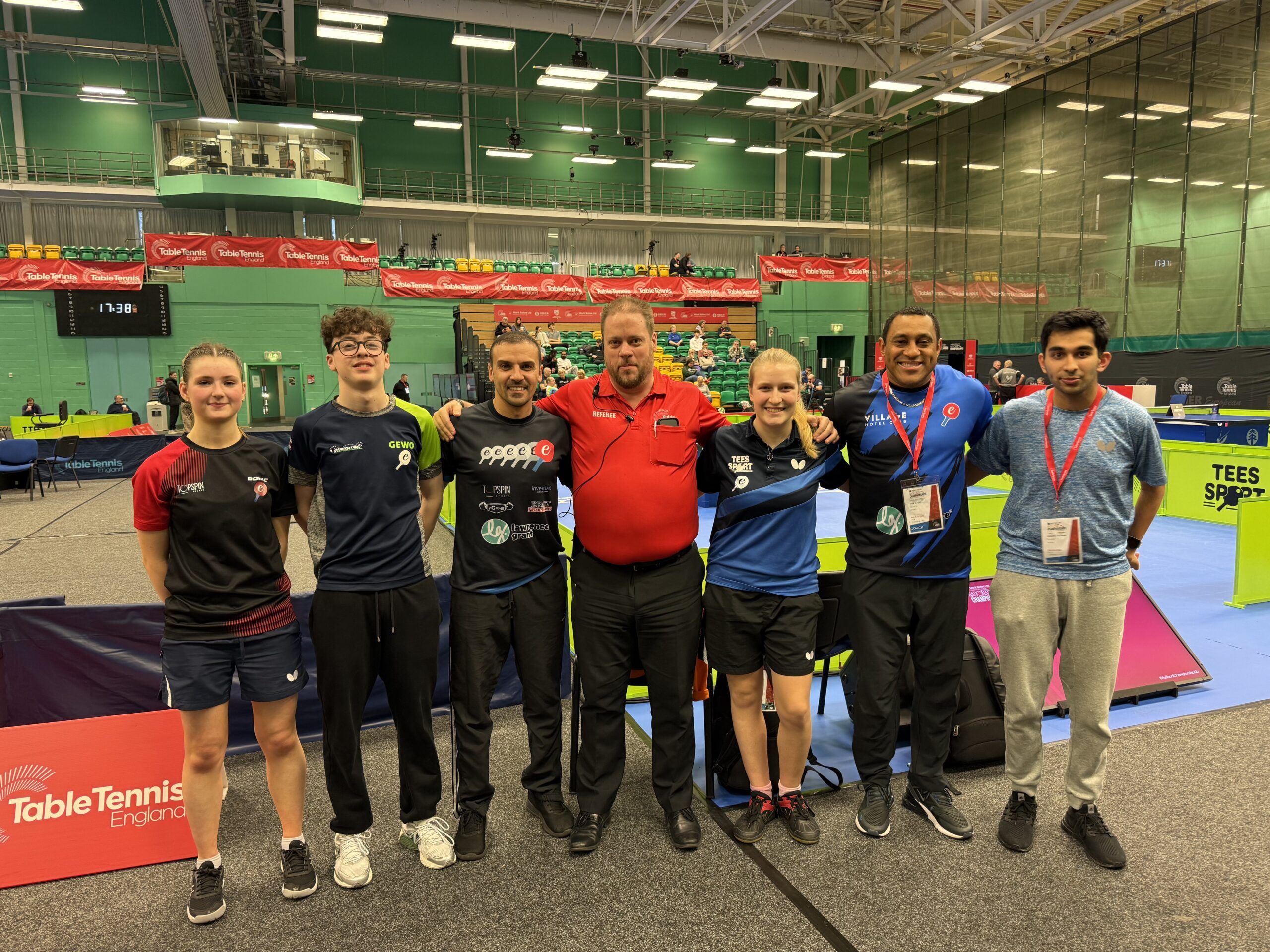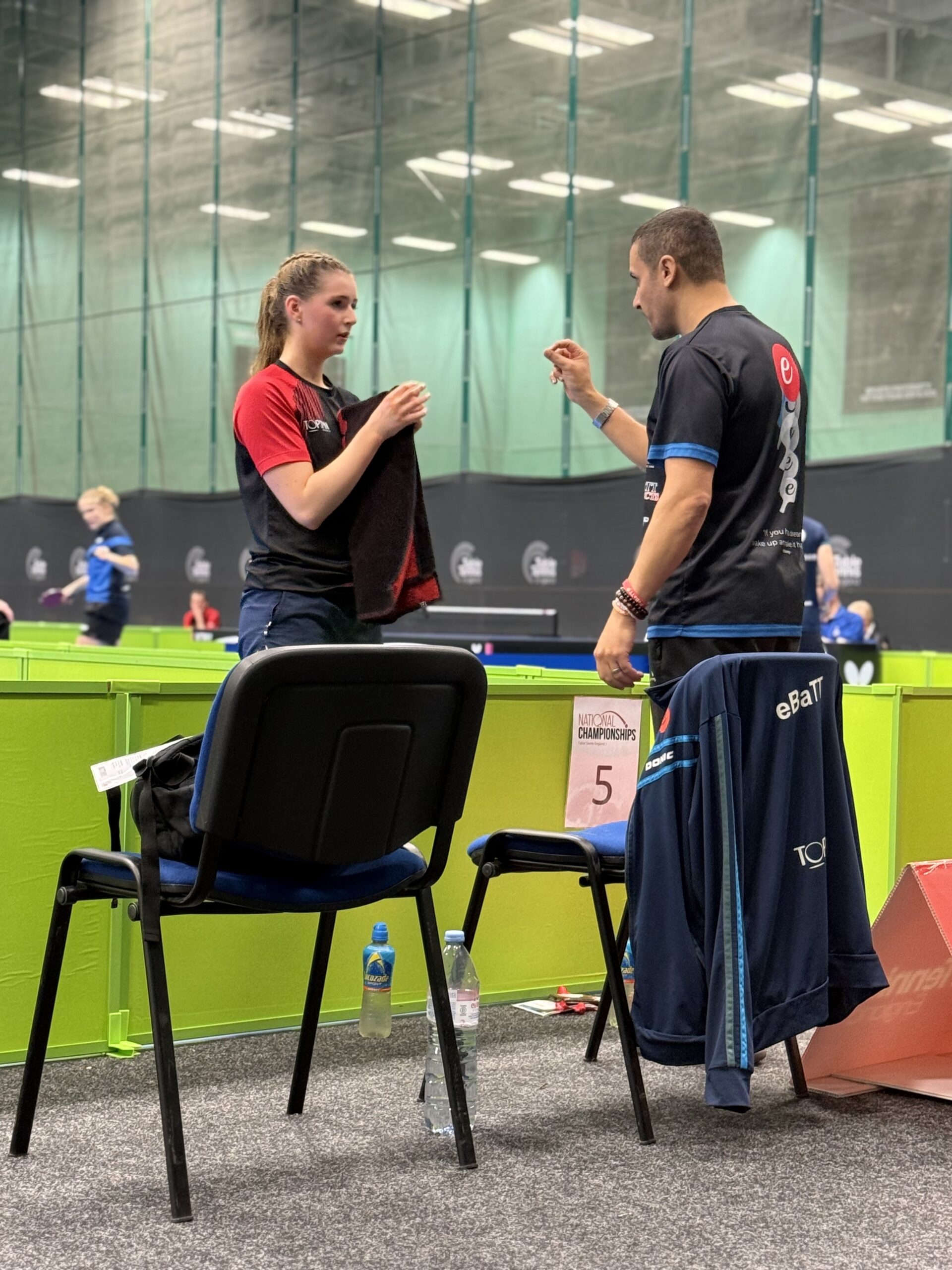We all put some kind of table tennis expectations upon ourselves.
The key is how do we handle that pressure?
Here’s a beautiful test I use with my players. I want you to close your eyes and think of a table tennis player. Use the first player that pops into your head, see them playing, look at their clothing, their footwork, their attitude, their technique and observe the surroundings.
Ok!
Who did you see?
What was their style?
Was it a male or female player?
Where was this person playing?
There will not be one reader who has the exact same visual.
Some will have themselves, others will see a player they train with or a player they admire or idolise. The location will vary depending on your experiences.
You see we all build images via our personal experience and create our reality through them.
Once you understand your personal thoughts, you can understand why and what you expect of yourself.
Our visuals change:
The more we play and compete the more images are compiled in our brains.
How does this affect us?
If we win an event or beat a player that we have not beaten before that image is implanted firmly in our memory bank. Which means we have a set of experienced images that provide users with certain future expectations. This can also work the other way if we lose or lost an event that image can set a precedence.
How to deal with expectation:
Some have a natural release mechanism and other hold their experiences firmly. This is due to both internal and external effects that build our internal imagery. For example, if you lose to someone you should have beaten (on paper) and your family, coach or others criticise you for this negative loss, you will naturally tap into your survival mechanisms. This includes attempting to ignore, defending yourself, wanting revenge, or possibly quitting the game.
Fear of negative connotations kick in our survival mode and in many cases it’s vital. For example, if you hear a car coming but can’t see it around the corner, you will stay on the pavement. On the other hand, our survival mechanism may holt our development. For example when a baby learns how to walk, if they fell once and never attempted to get back up, he/she would never walk.
Positive results leading to future expectations:
Winning sounds and feels good when people will applaud you and that experience often is re-played your in your mind for a short period of time. This positive outcome/‘s, build an expectation of, I must repeat and continue to develop. Otherwise, I’m a failure both to myself and those who see me as a good player or champions.
The key is to understand your ability and use it to its fullest potential. This means what has been done in the past should not have an effect on your present performance. Many things change over time, your state of mind, your training schedule, your physical health etc. Therefore you must do your best on every given occasion and avoid passed expectations by focusing on the present task.
Learning to deal with expectation:
- Understanding your views and thoughts (as mentioned above)
- Learn to face pressured situations by challenging yourself in doing uncomfortable things on your own and when surrounded by other people.
- Forgive, learn and develop; forgiveness is one secret top players use. They are able to forgive the negativity surrounded with a poor result and most importantly forgive themselves. Once forgiveness has been implemented we are able to view the issue clearly and learn from the outcome. Lastly, you must develop a system to tackle passed results.
Table tennis expectation:
Table tennis expectations ultimately have been built via images from past and present experiences. You can change the images in your mind to create a positive connotation. Like anything this is a skill, that needs the practice to develop and you will become good at it.
A great saying from one of the old time greats ‘Michael Jordan’ “I’ve missed more than 9000 shots, I’ve lost 300 games, I’ve missed 26 winning game shots, I’ve failed over and over again in my life and that’s why I SUCCEED.”
Let your experiences make you, not break you.










